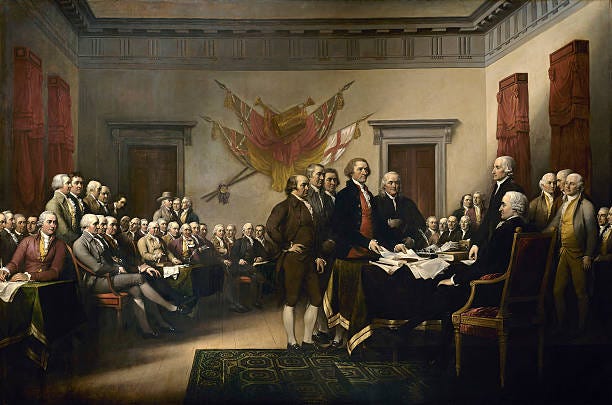On Liberty, Constraint, and Coercion
A hopefully unnecessary evil
Liberty in civilization depends on a balance between being personally unconstrained and not generating severe negative externalities that impact the people around us or the health and wellbeing of the collective system on which we all depend.
That is the key distinction between a society that affords liberty, and the naive notion of freedom that implies individual behavior ought to be absolutely unconstrained. The latter cannot exist inside of any system which maximizes freedom generally, as the unconstrained freedom of one becomes the unethical coercion of another.
When we must constrain the behavior of others in order to preserve the integrity of society and avoid undue harm coming to it and the individuals that comprise it, we should aim for the minimal constraint that serves its purpose, and no more.
Constraints come in degrees: from weak to strong. We typically apply weak constraints by specifying behaviors that are off limits: do not trespass, do not steal, do not murder. This leaves most of the space of possible behaviors unmolested.
The strongest constraint that can be applied is a prescription: the specification of a behavior that must be performed. In order to enact such constraints we must resort to coercion.
A coercive constraint closes off the rest of possibility space. If there are alternative ways to achieve the same ends, they become inaccessible. We lose all variety in favor of a monoculture.
If liberty is to be achieved and preserved, coercion must be treated as a last resort. A hopefully unnecessary evil. It would be naive to think that there are no conditions that could arise that could demand such coercion, but we should be fearful and ashamed to turn to such measures.
When one comes to the conclusion that general coercion is necessary to avoid some large systemic harm or the undue suffering of individuals, at minimum one should acknowledge that this is indeed a necessary evil. It should be treated with the utmost seriousness, and without any hint of glibness. We should examine and interrogate the rationale of the coercion and remain skeptical and doubtful of it at each step.
When the desire to coerce is presented with enthusiasm, it makes those that are coerced reasonably defensive. When those resisting coercion get labeled as if they are aggressors, it exacerbates this defensiveness. Those who resist are in fact manifesting a sacred duty, to prevent wanton coercion being applied without friction.
Whenever general coercion occurs, it ought to be done grimly and regretfully, never gleefully. The excitement that can come with collective attempts to enforce coercion is itself reason enough to resist, for there is nothing good that lies within or adjacent to this attitude.
If we must coerce our sisters and brothers, it should be done with the utmost respect and reservation. Anything less is an insult to liberty.

